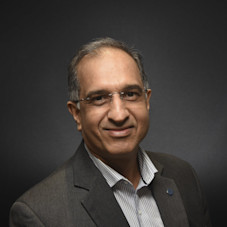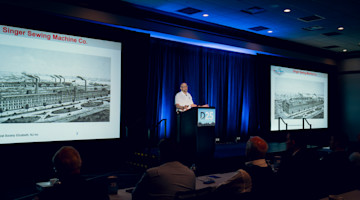India’s manufacturing purchasing managers' index rose to 58.4 in June, up from May’s 57.6. This marks its highest level in 14 months and remains well above the long-term average of 54.1. It indicates a significant improvement in business conditions, primarily driven by a sharp increase in export orders.
According to the World Bank's April forecast, the Indian economy is expected to grow by 6.3% in fiscal year 2025-26, a slight reduction from the 6.7% forecast made in January 2025. This downward adjustment reflects pressure on exports due to global uncertainties, although India is still projected to be the fastest-growing major economy in the world.
In its Economic Outlook Asia-Pacific Q3 2024 report released on June 25, Standard & Poor’s (S&P) Global Ratings emphasized that India's economic momentum will be largely supported by resilient domestic demand despite facing global challenges such as trade protectionism and geopolitical risks.
In its recent report Elevating India: Charting the Path to Self-Reliance, Cushman & Wakefield noted a significant transformation occurring within India's manufacturing landscape, driven by robust infrastructure development and supportive government policies. The findings were based on a survey of 94 senior leaders from the manufacturing and logistics sectors, including CEOs, plant heads, and supply chain managers.
The report highlights impressive growth in plug-and-play industrial parks, the expansion of multimodal logistics networks, and targeted investments aimed at boosting productivity in micro, small, and medium enterprises (MSMEs). These developments contribute to the acceleration of manufacturing expansion and enhance India's competitiveness in the global market.
The government's ongoing efforts to promote the Make in India initiative, particularly in defense manufacturing, have led to domestic production reaching an all-time high of $17.09 billion, with exports in the sector also increasing to $2.81 billion in FY 2024-25. Indian companies are now moving beyond conventional technologies like fighter aircraft and missiles, investing more in cyber warfare, space capabilities, and artificial intelligence-driven platforms.
In addition, India's renewable energy output surged by 24.4% year over year to 134.43 billion kWh in the first half of 2025, marking the fastest growth since 2022. The country is expected to add 32 GW of renewable energy capacity in 2025, up from 28 GW added in 2024.
A few recently announced projects and investment news items are listed below for reference:
Foxconn is investing $2.2 billion to expand its operations and establish a new component facility near Chennai. Foxconn currently operates 12 factories across India. During the March-May quarter of 2025, Foxconn exported 97% of the iPhones produced in India, a $3.2 billion value.
Tata Advanced Systems (TASL) and Dassault Aviation have signed a production transfer agreement to manufacture the Rafale fighter aircraft fuselage in India. Under the agreement, TASL will establish a production facility in Hyderabad to manufacture key structural sections of the Rafale, including the lateral shells of the rear fuselage, the complete rear section, the central fuselage, and the front section. The first fuselage sections will roll off the assembly line in FY 2028. The planned facility will deliver up to two complete fuselages every month.
Announced at the Paris Air Show, Reliance Aerostructure Limited (RAL) and Dassault Aviation have formed a strategic alliance to shift the production of Falcon 2000 business jets to India for global customers. The alliance, Dassault Reliance Aerospace Limited (DRAL), will establish a final assembly line for the Falcon 2000 at the Multi-modal International Cargo Hub in Nagpur, which will also become the global Centre of Excellence for all Falcon models.
Safran is establishing Safran Aircraft Engine Services India in Hyderabad, a maintenance, repair, and overhaul (MRO) facility for Rafale’s M88 engines. The new company will begin operations by the end of 2026. Pierre Fernandez, the company’s general manager, mentioned that the facility will also handle CFM International LEAP engine MRO services. Safran already operates two major industrial sites in Hyderabad: Safran Electrical & Power India, which produces electrical harnesses for LEAP engines and Rafale fighters; and Safran Aircraft Engines, which manufactures rotating parts for the LEAP engine’s low-pressure turbine.
Aerolloy Technologies Ltd. (ATL), a wholly owned subsidiary of PTC Industries, has signed an MOU with Safran to develop and manufacture components and materials specifically for military aircraft engines. ATL is scaling up operations through investments in a 50-acre facility in Lucknow. The plant will feature a titanium and superalloy mill capable of processing ingots, billets, bars, plates, and sheets. The foundry will include vacuum arc remelting, hot isostatic pressing, CNC machining, non-destructive testing, and more.
Reliance Defence has entered into a strategic cooperation agreement with Germany’s Diehl Defence for the local production of the Vulcano 155 mm precision-guided munition system. The Vulcano is an advanced artillery shell designed for long-range, high-accuracy strikes.
Hindustan Aeronautics Limited and GE Aerospace are finalizing a deal to jointly produce F-414 engines in India. These engines will power the Tejas Mk-II and future Advanced Medium Combat Aircraft fighter jets.
Max Aerospace & Aviation plans to set up the country’s first private-sector helicopter manufacturing plant in Nagpur. The company will produce light and medium helicopters for the civil and defense sectors.
Bharat Forge has partnered with France-based Turgis Gaillard to co-develop and manufacture the Aarok unmanned aerial vehicle (UAV) in India. Aarok is a medium-altitude, long-endurance UAV.
For more information, please contact Arun Mahajan at AMahajan@AMTonline.org, and to learn how to take advantage of these opportunities, click here.






